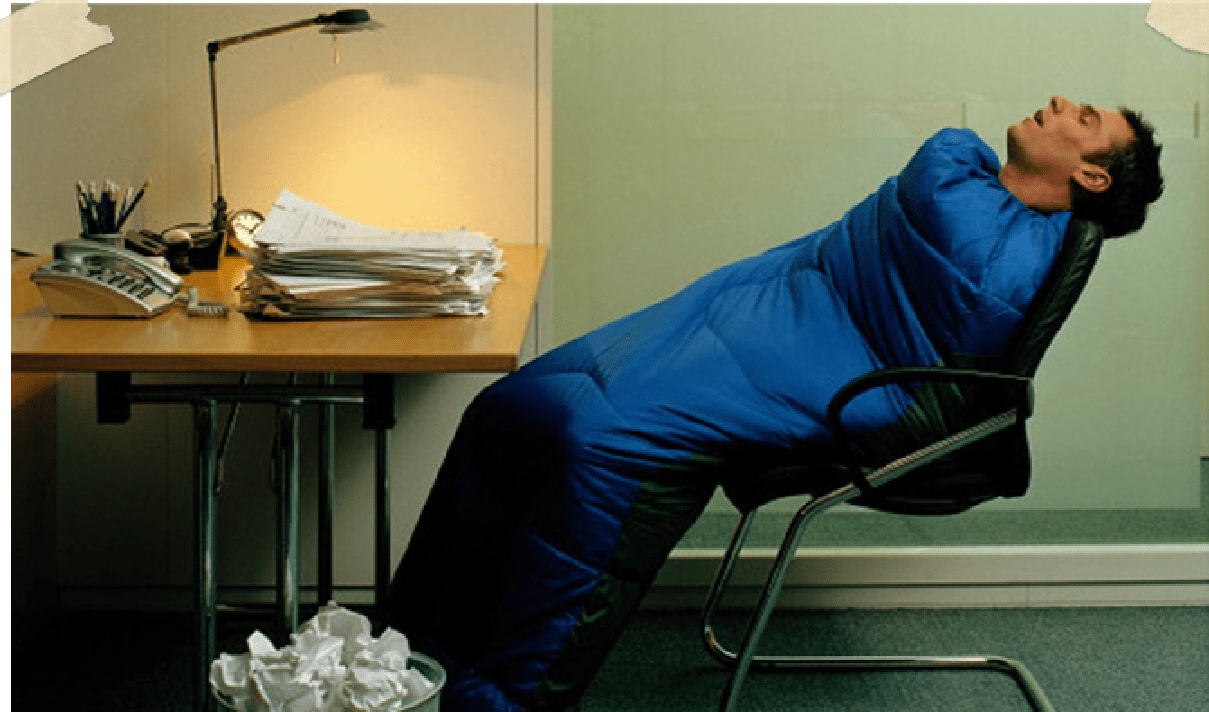Sleeping your way to the top…
Countless books, articles and blogs are dedicated to advising you on how to improve your career prospects and salary, but few if any of these include in their tips for the top “get an early night”
The prevailing work culture suggests that staying in the office past midnight, sending emails late into the night, and pushing on into the early hours when a deadline is looming, mark you out as a dedicated employee, ripe for promotion and a decent pay rise.
Sleep deprivation
However, clinical studies consistently show that insufficient sleep has important negative impacts on daytime performance. Many simple and complex cognitive tasks are negatively impacted by sleep deprivation. These include memory, mental arithmetic, reasoning, innovative and flexible thinking, strategic planning, creativity, decision making and judgement. These deficits can begin after just one night of reduced sleep, and continue to increase significantly as sleep deprivation continues. What is more, studies have actually found that there is a positive relationship between sleep duration and wages, so that extending your weekly sleep by just one hour can increase your annual salary by a whopping 4.5%.
Data from the National Sleep Foundation suggests that more than a third of us are consistently not getting enough sleep. A recent RAND analysis of the economic costs of insufficient sleep found that those of us who are regular commuters, work irregular hours, and experience workplace stress including unrealistic time pressures are sleeping on average nearly 30 minutes less per night than those who do not experience those factors. This sounds insignificant, until you realise that it equates to you losing over 173 hours of sleep per year.
Negative work impact
Why does insufficient sleep have such a negative impact on work? Sleep is one of the most important processes that happen in our bodies. Far from being the simple “absence of wakefulness”, sleep is a highly complex process which is vital for both physical and mental health and wellbeing. We now understand that sleep is vital for the brain’s ability to remove the toxic waste products that are a by-product of neuronal activity during the day, because the glymphatic system, which removes that waste, is 60% more productive when asleep than when awake.
Prioritise your sleep
So next time you’re considering pulling an “all-nighter”, or lying in bed catching up on emails on your smartphone, stop. Instead, focus on ensuring you can perform at your best the next day, and beyond, by prioritising sufficient quality sleep. How can you achieve that? For most of us, that means somewhere between 7 and 9 hours of sleep per night. Here are my top tips for ensuring that sleep is fully restful:
- Maintain a regular bedtime and wake time
- Turn off your electronic devices at least 30 minutes before bedtime
- Have some winding down time before you go to bed to enable your brain and body to prepare for sleep
- Turn down the lights to entrain that circadian rhythm (more on this in a later post)
- Make your bedroom a haven of calm, cool quietness.
Then get ready to ask for that pay rise….because the only thing worth catching up on at night is sleep….
If you would like to discover how we can help your staff enhance wellbeing and performance through improved sleep, please visit our sleep and relaxation section.

Published: Thursday 16 August 2018
Written by: Dr Alanna Hare, Consultant Physician and Sleep Medicine Expert



